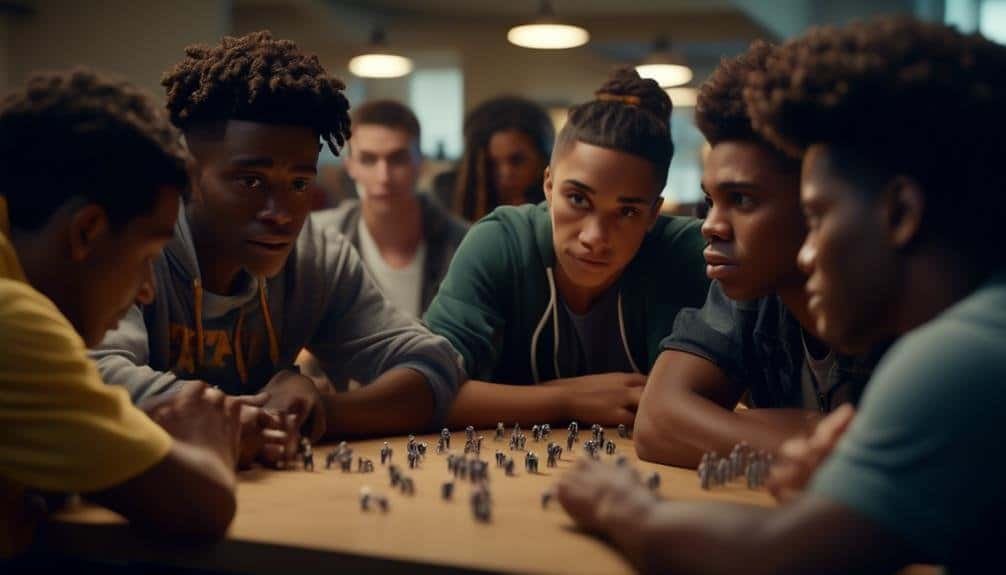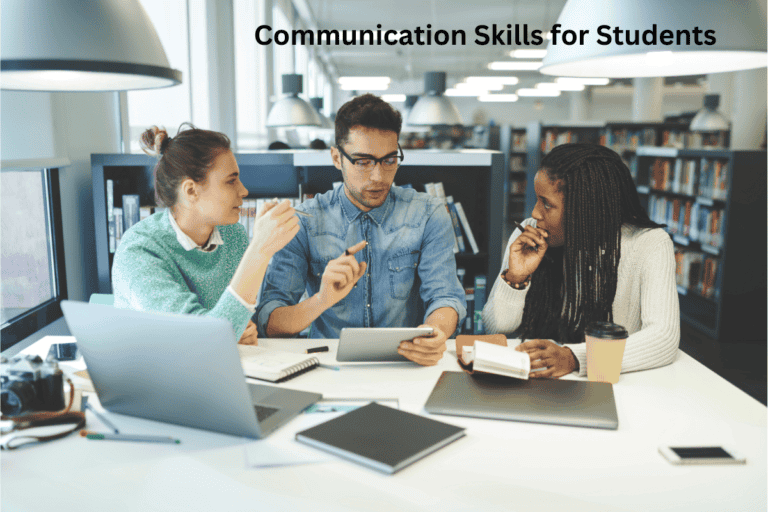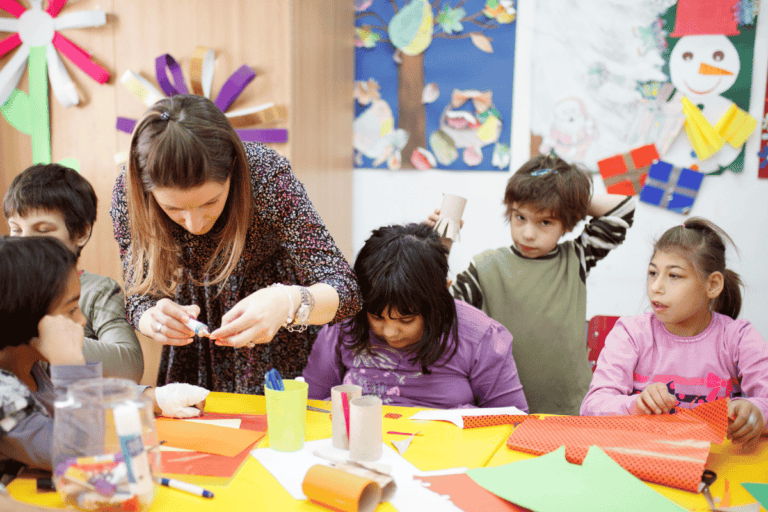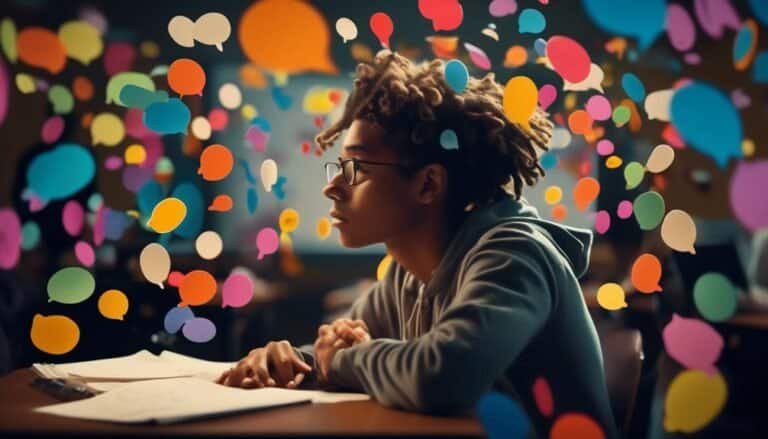Teamwork and Collaboration for Students
You may be thinking, 'Why should I bother with teamwork and collaboration as a student?' Well, let me assure you that these skills are not just for group projects or extracurricular activities. In fact, they play a crucial role in your overall academic success and personal development.
By working collaboratively with your peers, you can broaden your perspectives, enhance your problem-solving abilities, and develop essential communication skills.
But how exactly can you excel in teamwork? What strategies can you employ to ensure effective collaboration?
Stay tuned as we explore the answers to these questions and discover the many benefits that await you on this journey of teamwork and collaboration.
Key Takeaways
- Teamwork and collaboration in education foster collaborative learning and enhance student engagement.
- They develop critical thinking skills and promote effective communication among students.
- Teamwork and collaboration encourage responsibility and accountability among students.
- They improve learning outcomes, increase creativity and innovation, and broaden perspectives and problem-solving skills.
Importance of Teamwork in Education
Teamwork plays a vital role in education, fostering collaborative learning and enhancing student engagement. Collaborative learning refers to the process where students work together on a project or task, actively participating and sharing ideas. This approach allows students to learn from one another, develop critical thinking skills, and gain a deeper understanding of the subject matter.
Cooperative projects, which involve students working in teams, promote effective communication, problem-solving, and decision-making. By working together, students can pool their knowledge and skills, leading to more comprehensive and well-rounded outcomes.
Moreover, teamwork in education encourages students to take ownership of their learning and become active participants in the classroom. It cultivates a sense of responsibility and accountability, as students rely on each other to complete tasks and achieve shared goals.
Additionally, collaborative learning fosters a positive classroom environment, where students feel valued and respected for their contributions. Ultimately, by embracing teamwork and collaboration, educators can create an inclusive and engaging learning experience for their students.
Benefits of Collaboration for Students
As students engage in collaborative learning, they not only develop critical thinking skills and gain a deeper understanding of the subject matter, but they also reap the benefits of collaboration. Collaborative learning offers numerous advantages that contribute to improved learning outcomes, increased creativity, and innovation.
One of the major benefits of collaboration is improved learning outcomes. By working together on tasks and projects, students can share their knowledge and expertise, leading to a more comprehensive understanding of the material. Collaborative learning also allows students to learn from one another's perspectives and experiences, broadening their horizons and enhancing their problem-solving skills.
Another significant advantage of collaboration is increased creativity and innovation. When students collaborate, they can bounce ideas off each other, sparking creativity and generating innovative solutions. Collaborative environments encourage students to think outside the box and explore different approaches to problem-solving. This fosters a culture of creativity and innovation, which are essential skills in today's rapidly changing world.
To highlight these benefits, let's take a look at the table below:
| Benefits of Collaboration for Students | |
|---|---|
| Improved Learning Outcomes | – Deeper understanding |
| – Enhanced problem-solving | |
| Increased Creativity and Innovation | – Sparking of new ideas |
| – Exploration of new approaches | |
| – Cultivating a culture of creativity |
Strategies for Effective Teamwork in the Classroom
To effectively promote teamwork in the classroom, consider implementing these practical strategies:
- Encourage active participation: Create an inclusive environment where every student feels comfortable contributing their ideas and opinions. Encourage students to actively listen to their peers and provide constructive feedback.
- Foster group dynamics: Assign roles within the group to ensure equal participation and shared responsibilities. Encourage students to collaborate and work together towards a common goal. Teach them to appreciate the strengths and unique perspectives each team member brings to the table.
- Promote peer learning: Encourage students to teach and learn from one another. Provide opportunities for peer tutoring and group discussions where students can exchange knowledge and skills. This not only enhances their understanding of the subject matter but also improves communication and problem-solving skills.
- Set clear expectations: Establish clear guidelines and expectations for teamwork, including deadlines, task distribution, and communication protocols. This helps students stay organized, accountable, and focused on the task at hand.
- Provide guidance and support: Be available to answer questions, provide guidance, and facilitate discussions when needed. Offer constructive feedback to help students improve their teamwork skills and address any conflicts that may arise.
Developing Communication Skills Through Teamwork
Encouraging active participation and fostering group dynamics in the classroom can pave the way for you to develop strong communication skills through your collaborative efforts. Effective communication is a vital skill that can benefit you in various aspects of your life, both personally and professionally.
By actively listening to your teammates, you can gain a better understanding of their perspectives, ideas, and concerns. This won't only foster a positive and respectful environment but also help you build trust and rapport with your peers.
In addition, developing conflict resolution skills is crucial for effective communication within a team. Conflicts can arise due to differences in opinions, priorities, or working styles. Learning how to navigate and resolve conflicts in a respectful and constructive manner is essential for maintaining healthy relationships and achieving successful outcomes.
By practicing active listening techniques and seeking to understand different viewpoints, you can minimize misunderstandings and find mutually beneficial solutions.
To further enhance your communication skills, it's important to communicate clearly and concisely, using appropriate language and non-verbal cues. Being able to express your thoughts and ideas effectively won't only ensure that your message is understood but also contribute to the overall productivity and cohesiveness of the team.
Enhancing Problem-Solving Abilities Through Collaboration
Collaborating with others can greatly enhance your problem-solving abilities. When you work together with a team, you have the opportunity to combine different perspectives, skills, and ideas, which can lead to more effective and creative solutions.
Here are two ways collaboration can enhance your problem-solving abilities:
- Promotes critical thinking: When you collaborate with others, you're exposed to different viewpoints and ways of thinking. This encourages you to critically analyze problems from multiple angles, consider alternative solutions, and evaluate the pros and cons of each option. It helps you develop a broader perspective and improves your ability to think critically.
- Fosters creative solutions: Collaboration allows for brainstorming and idea generation. By working with others, you can bounce ideas off each other, build upon each other's suggestions, and explore innovative approaches to problem-solving. The diverse insights and expertise of your team members can inspire creative solutions that you mightn't have thought of on your own.
Conclusion
In conclusion, teamwork and collaboration are essential skills for students to develop in order to succeed in their education and future careers.
By working together, students can gain a deeper understanding of concepts, improve their communication skills, and enhance their problem-solving abilities.
The benefits of collaboration are immense, from fostering creativity to building strong relationships.
So, don't underestimate the power of teamwork – it's like a rocket fuel that propels students to greater heights of success!







